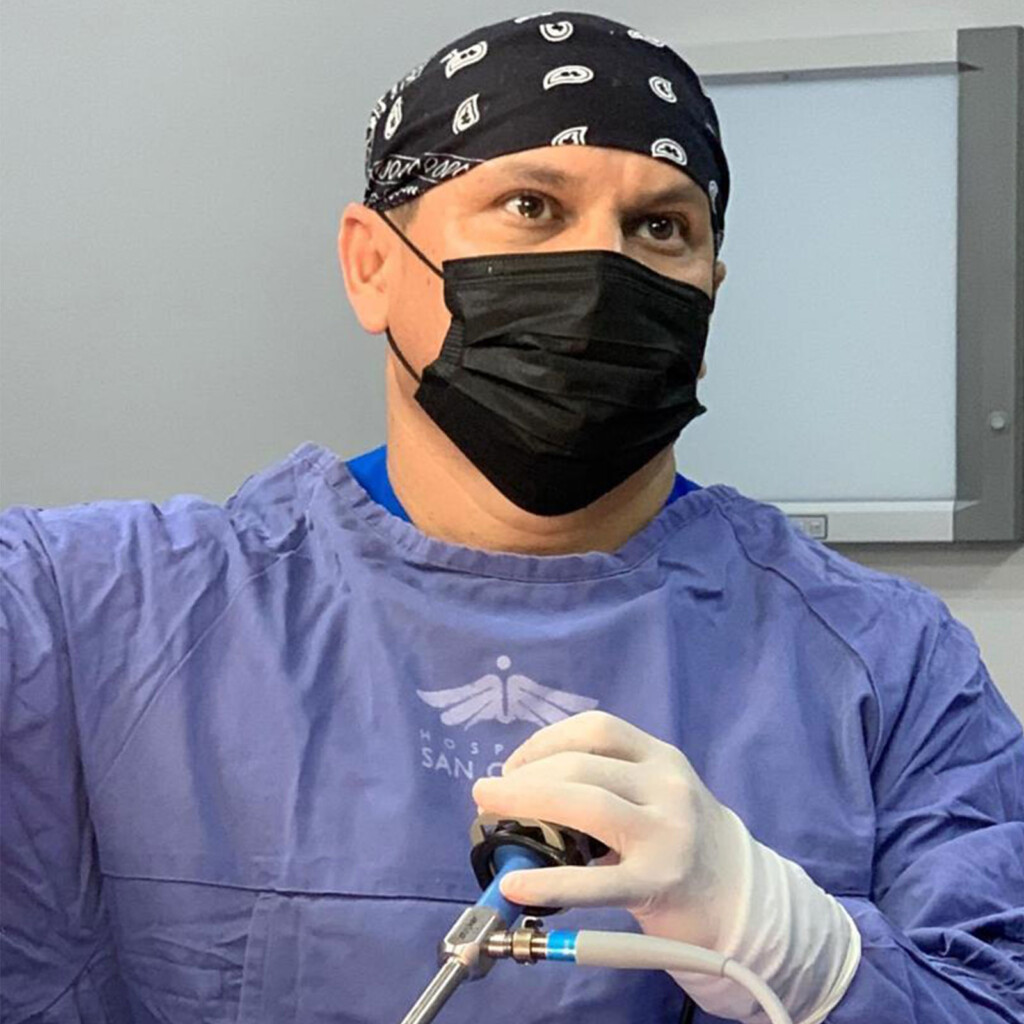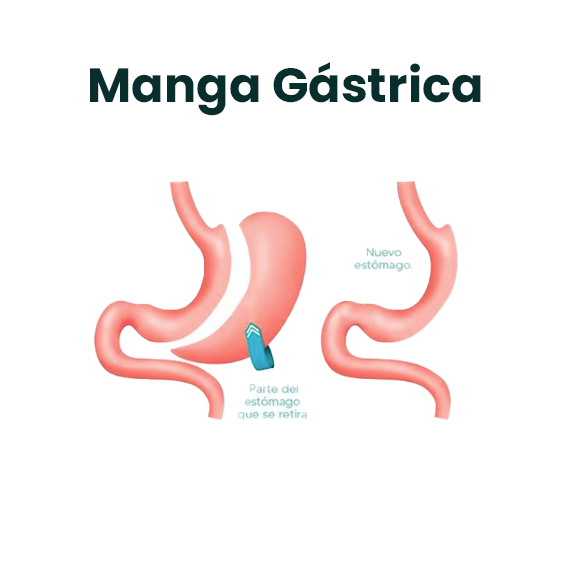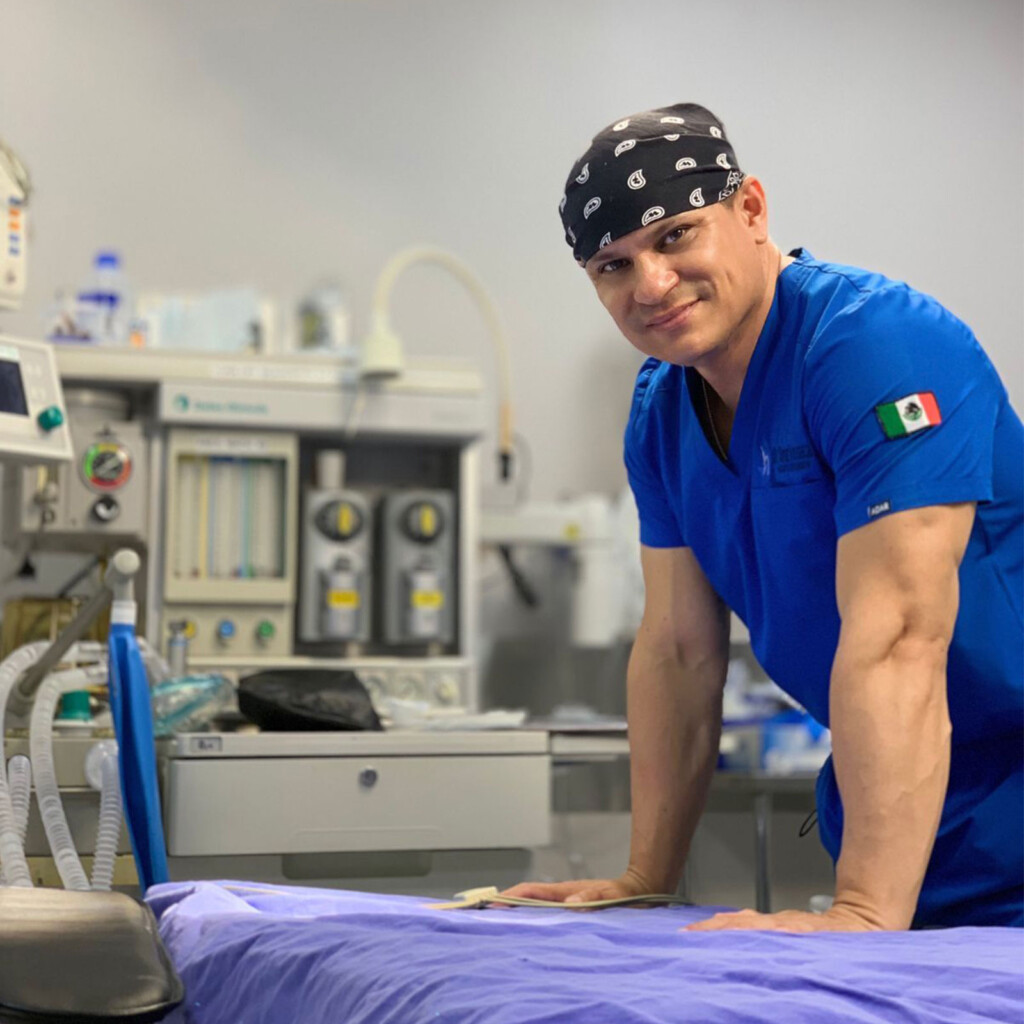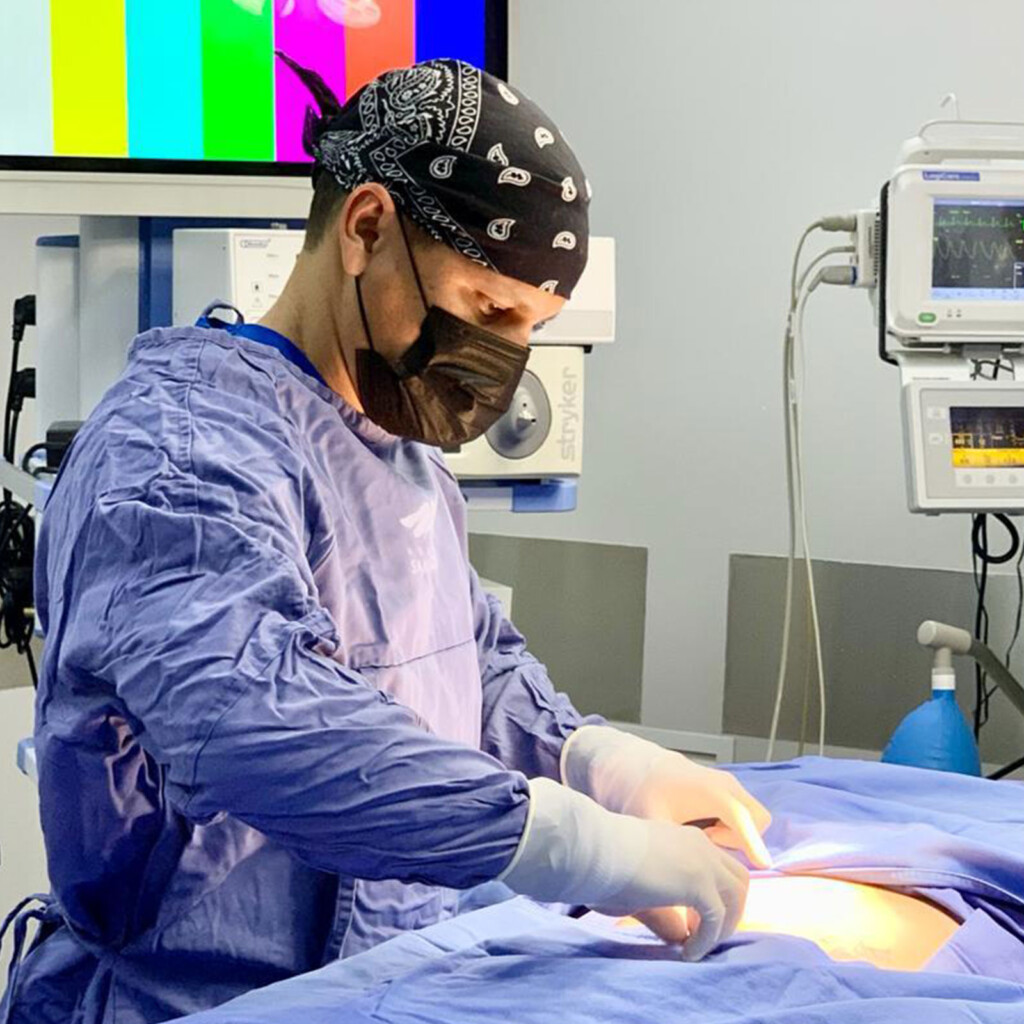

Gastric Sleeve

Gastric Sleeve
Gastric sleeve surgery consists of cutting and removing part of the stomach (about 80%) and a narrow tube or “sleeve” is built so that the new stomach is much smaller than the original stomach. This technique is performed laparoscopically, requires general anesthesia, and takes about an hour. Removing approximately 80% of the stomach leads to a significant reduction in the production of ghrelin, known as the hunger hormone. In other words, by removing a large part of the stomach, the patient ‘s appetite, and anxiety decrease and generate weight loss.

Frequent Questions
-
What does it consist of?
Gastric sleeve surgery consists of cutting and removing part of the stomach (approximately 80%) and a narrow tube or “sleeve” is constructed in this way the new stomach is much smaller than the original stomach.
This technique is performed laparoscopically, requires general anesthesia, and lasts about an hour.
By removing approximately 80% of the stomach, it leads to a significant reduction in the production of ghrelin, known as the hunger hormone. That is, by removing a large part of the stomach, the patient's appetite and anxiety decreases and generates weight loss.
-
To whom it can be done?
- People with obesity who have NOT responded to medical treatment
- People with a body mass index of 40 or more (extreme obesity)
- People with a body mass index greater than 35 with diabetes, hypertension, or another disease associated with obesity.
- People with dysfunctional or failed gastric banding or incomplete weight loss.
-
What advantages does it offer?
- It is a minimally invasive technique that reduces the volume of the stomach without further changes in the digestive system.
- Results are obtained quickly, up to 60%-70% of the patient's excess weight. The reduction of the stomach favors rapid satiety with small amounts of food.
- The absorption of nutrients in the digestive system is not usually affected and you only have to take very general oral vitamin and mineral supplements.
- It has fewer nutritional and food complications.
- Find out which procedure best suits your needs, schedule an appointment for your assessment.
Discover more procedures
that may interest you
Dare to take the step that will
change your health and improve your lifestyle.

